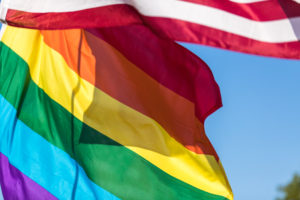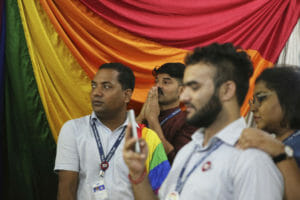Physician, 93, to Head Church After Death of Mormon Leader Thomas Monson
Russell M. Nelson, who has a conservative record, is not expected to press for reforms, including those advancing the rights of LGBT members.SALT LAKE CITY—The man set to become the next Mormon church president is a 93-year-old former heart surgeon whose conservative track record on the religion’s leadership panel has led Mormon scholars to predict he won’t make any major changes.
Russell M. Nelson is likely to be formally named to the post in the coming days under longstanding church protocol designed to ensure a smooth handover by giving the post to the longest-tenured member of the governing Quorum of the Twelve Apostles.
Nelson has been on the panel for three decades.
President Thomas S. Monson died Tuesday night at his home in Salt Lake City after leading the church for nearly a decade. He was 90.
Nelson would become the second-oldest person to be named president of The Church of Jesus Christ of Latter-day Saints. Only Joseph Fielding Smith was older, by one month, when he became church president in 1970.
Expect more “continuity than change” from Nelson, who seems to maintain a conservative interpretation of church doctrine while trying not to alienate anyone, said Patrick Mason, associate professor of religion at Claremont Graduate University in California and the Howard W. Hunter Chair of Mormon Studies.
“He has a generous impulse within him, but it coexists alongside a fierce commitment to orthodoxy,” Mason said. “There’s no indication from his previous service that Nelson sees himself as a reformer.”
Scholars don’t expect Nelson to deviate from the church’s current stance on LGBT issues. The faith has opposed gay marriage and homosexual activity amid widespread social acceptance while trying to foster an empathetic stance toward LGBT people.
In a 2016 speech, Nelson defended the religion’s decision the year before to adopt new rules banning children living with gay parents from being baptized until age 18 and clarifying that people in same-sex relationships are considered apostates, meaning they can be kicked out of the religion.
That policy drew harsh criticism from gay church members and their supporters, who considered it a major setback from recent progress.
Nelson said in the speech that the new rules came from a revelation that Monson and other leaders received that gave them “spiritual confirmation” that it was the right thing to do after many states legalized gay marriage.
Presidents of the Utah-based faith are considered prophets who lead the church through revelations from God in collaboration with two top counselors and members of the Quorum of the Twelve.
Born in Salt Lake City in 1924, Nelson became a doctor by 22. He served a two-year Army medical tour of duty during the Korean War before resuming a medical career that included being director of thoracic surgery residency at the University of Utah.
In the spring of 1984, he was called to join the religion’s Quorum of the Twelve Apostles and left behind his medical career.
Nelson still uses the precision mentality that made him a successful surgeon, said Richard Bushman, a Mormon historian and emeritus professor at Columbia University.
“He likes exactitude. He likes good order,” Bushman said. “I think we’ll see that.”
Nelson also has a soft side and loves his family, Bushman said. He and his first wife, Dantzel White, had 10 children together. After she died in 2005, Nelson remarried Wendy Watson in 2006.
The first chance to gauge Nelson’s intentions could come when he chooses his two counselors from the Quorum of the Twelve Apostles. Though none of the members are true reformers, some have more centrist streaks than others, Mason said.
Another factor in Nelson’s presidency will be his age, even though he is well-known for vibrant health that makes him look much younger.
“No matter how healthy he is, the limits of age mean it’s going to be tough for him to have a really vigorous and dynamic presidency,” Mason said.
Bushman believes Nelson will have many years of effective leadership.
“I don’t think he will come across as an old, old man,” Bushman said. “He seems to have plenty of vigor.”
The succession plan was created in 1889 after nearly two years of debate and some politicking among the apostles after the faith’s third president, John Taylor, died, said Armand Mauss, a retired professor of sociology and religious studies at Washington State University. Since then, the plan has been carried out without exception.
Nelson is expected to be formally appointed as the 17th Mormon president during a private meeting of the apostles in the Salt Lake City temple, most likely sometime after a funeral is held for Monson on Jan. 12.
Your support matters…Independent journalism is under threat and overshadowed by heavily funded mainstream media.
You can help level the playing field. Become a member.
Your tax-deductible contribution keeps us digging beneath the headlines to give you thought-provoking, investigative reporting and analysis that unearths what's really happening- without compromise.
Give today to support our courageous, independent journalists.






You need to be a supporter to comment.
There are currently no responses to this article.
Be the first to respond.